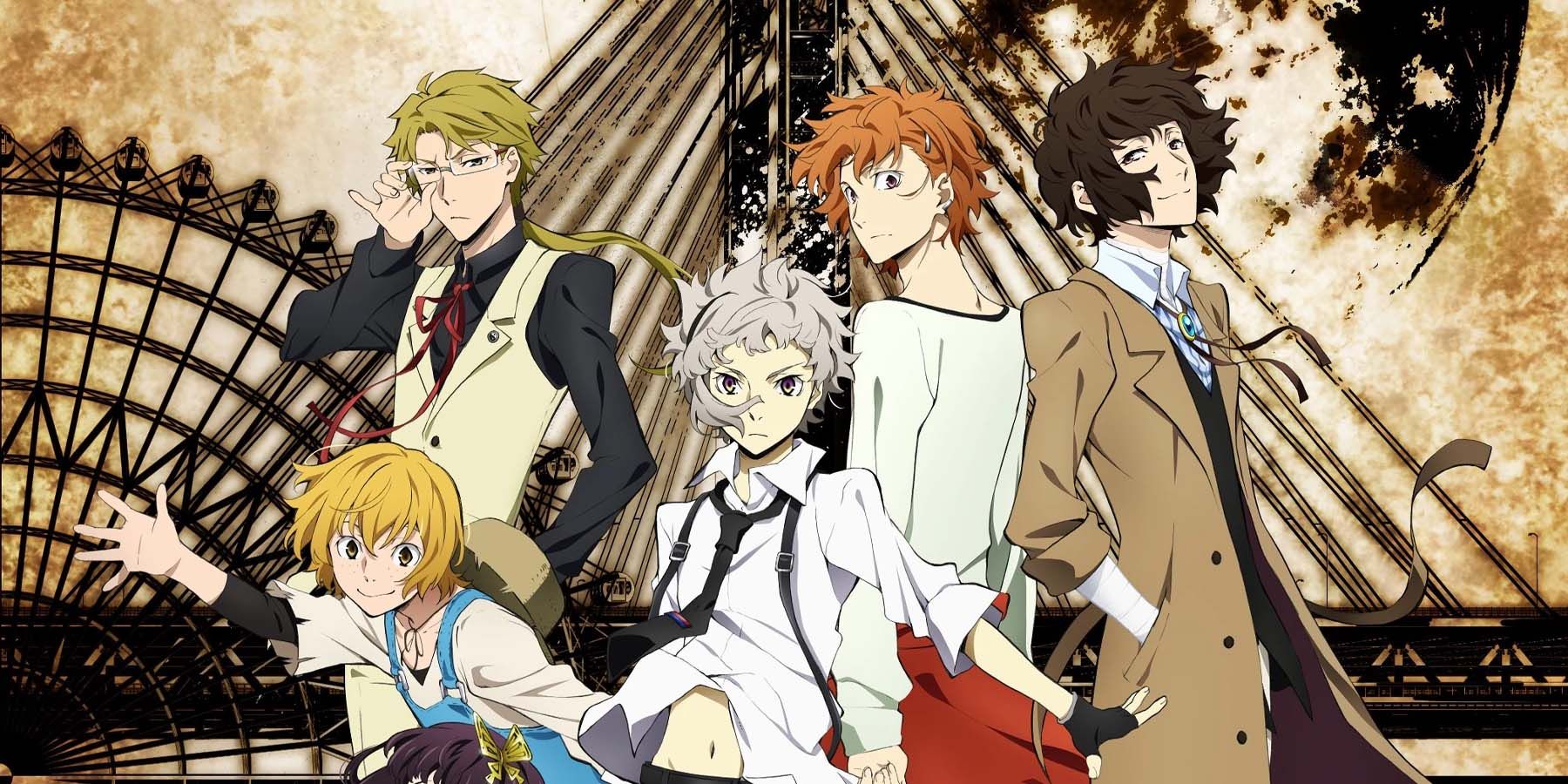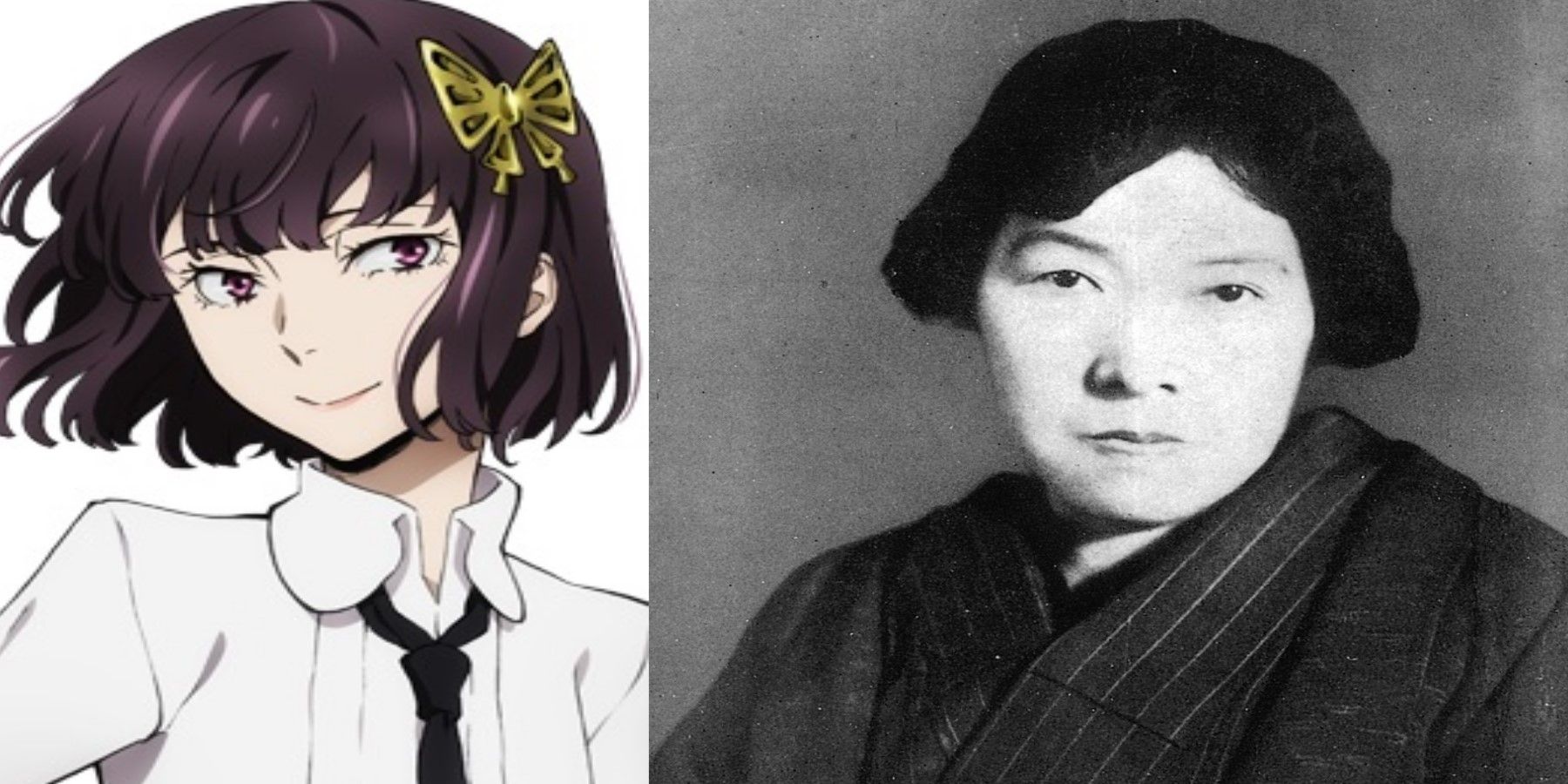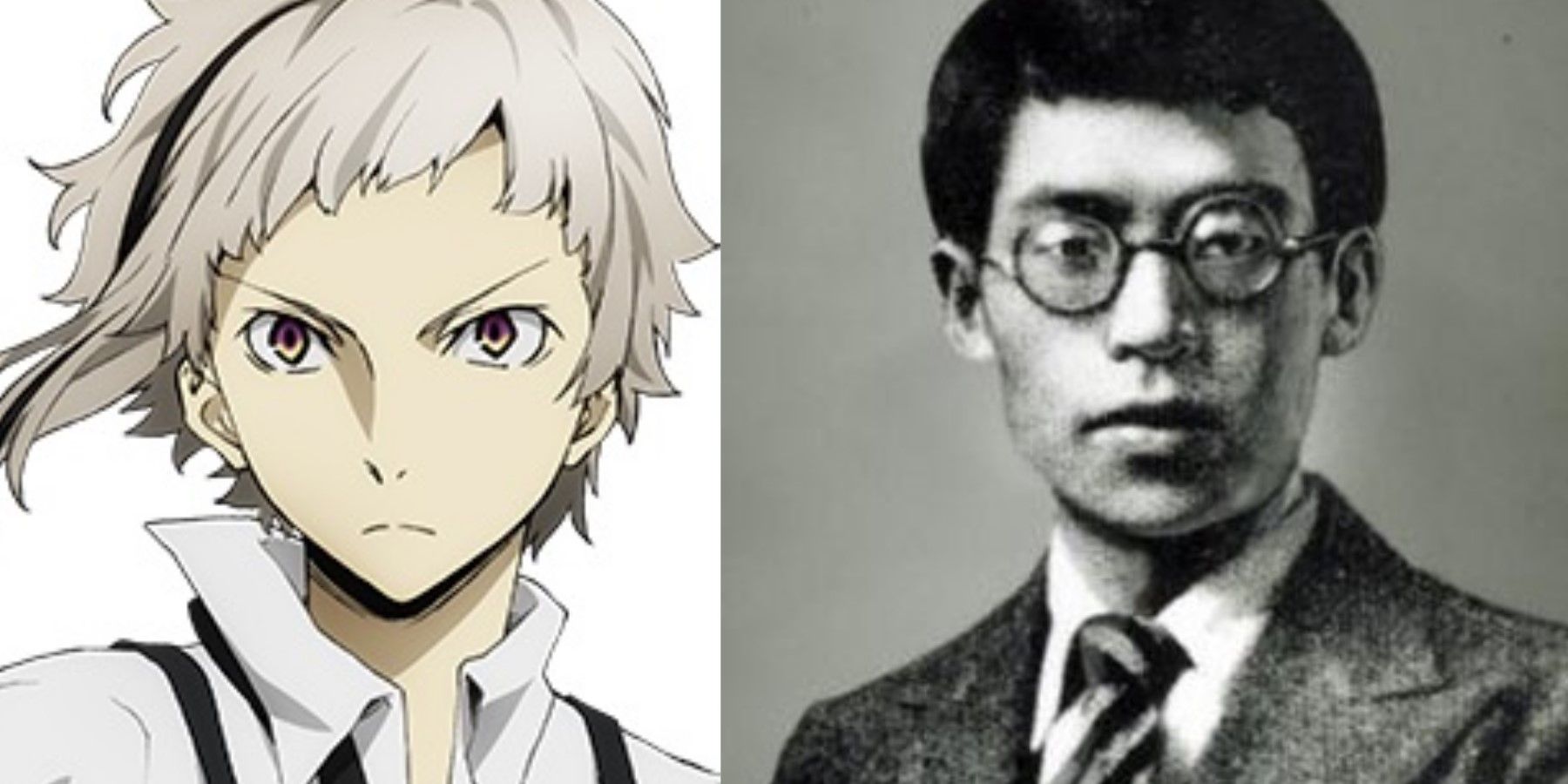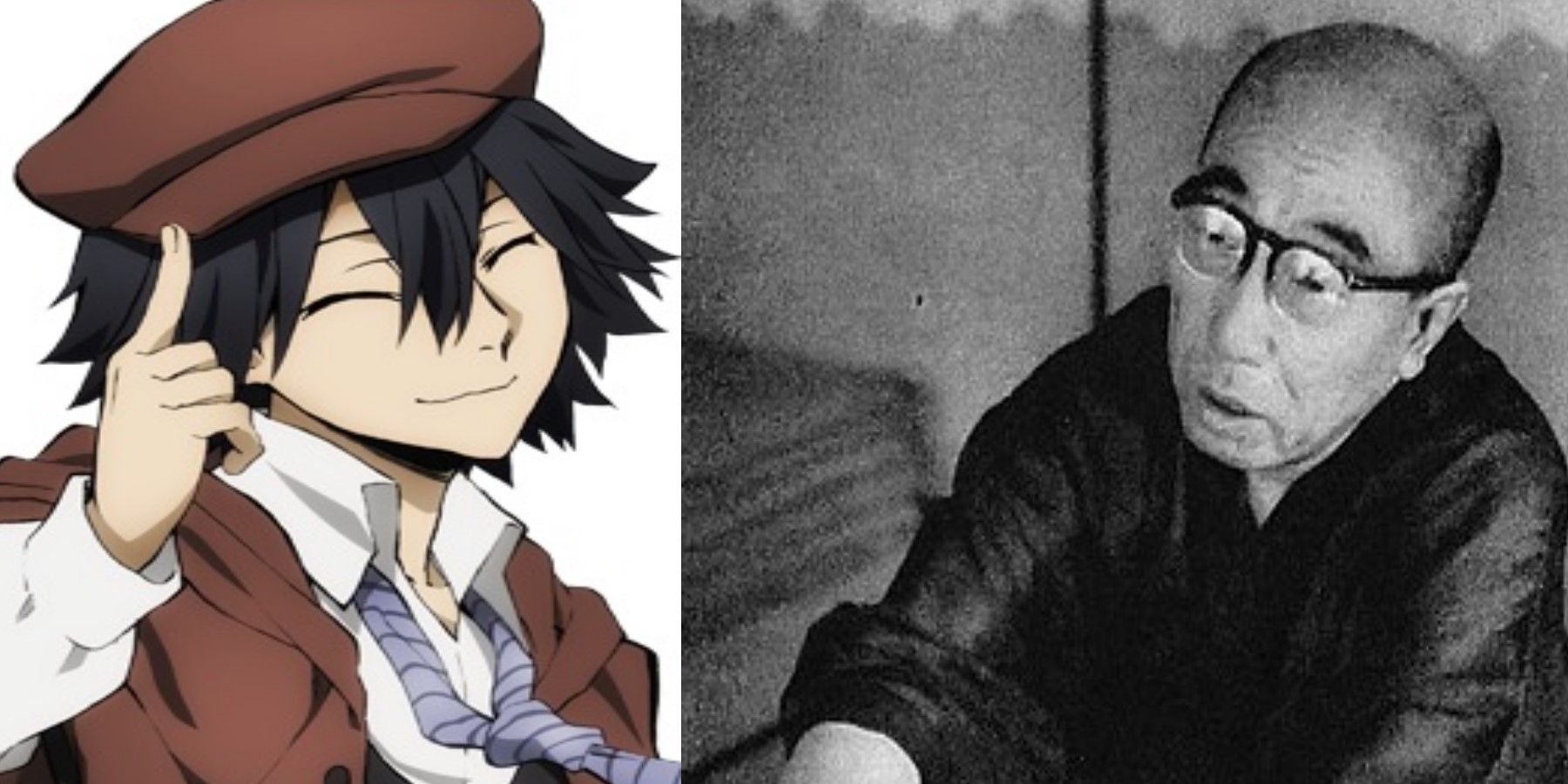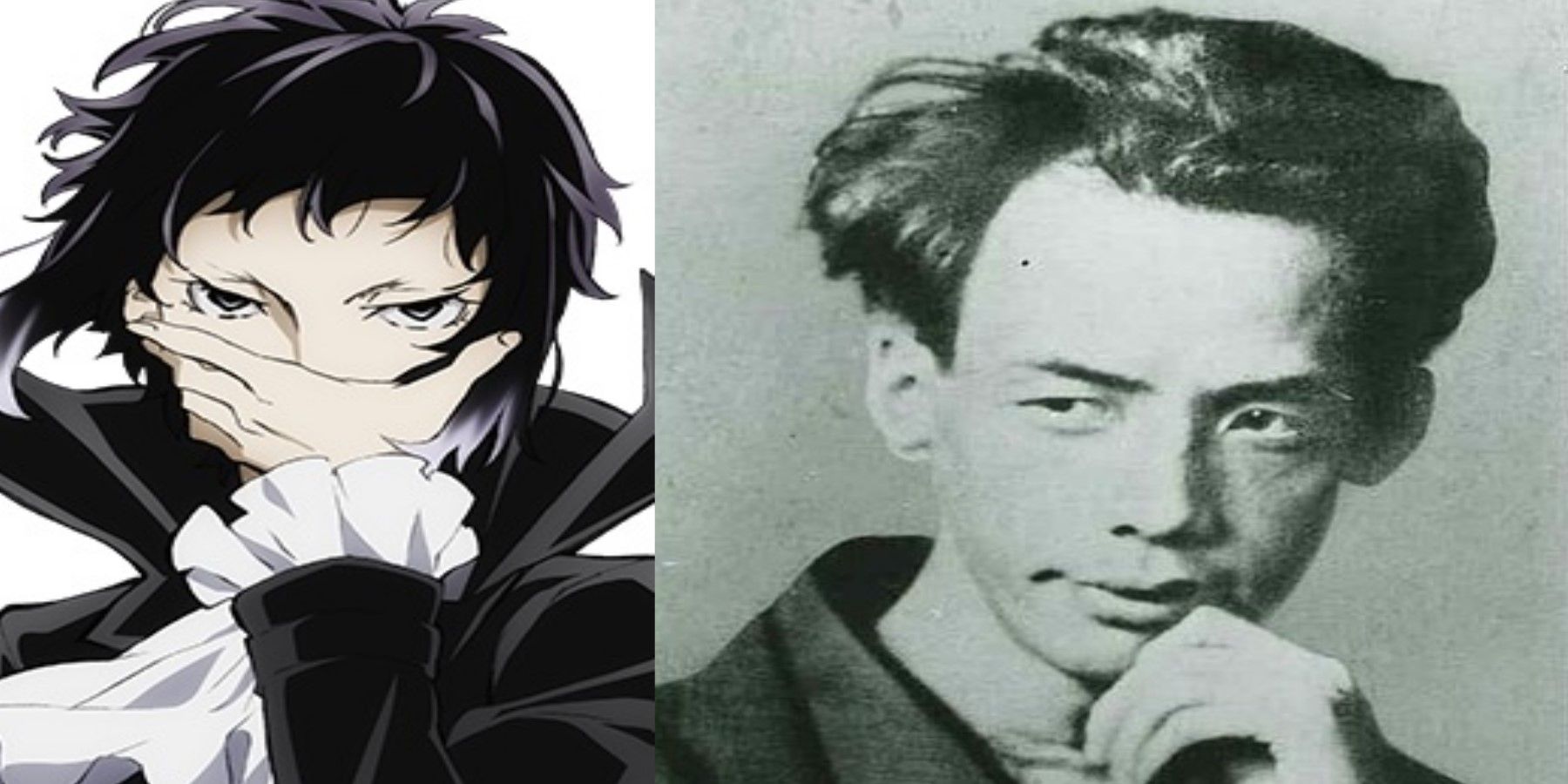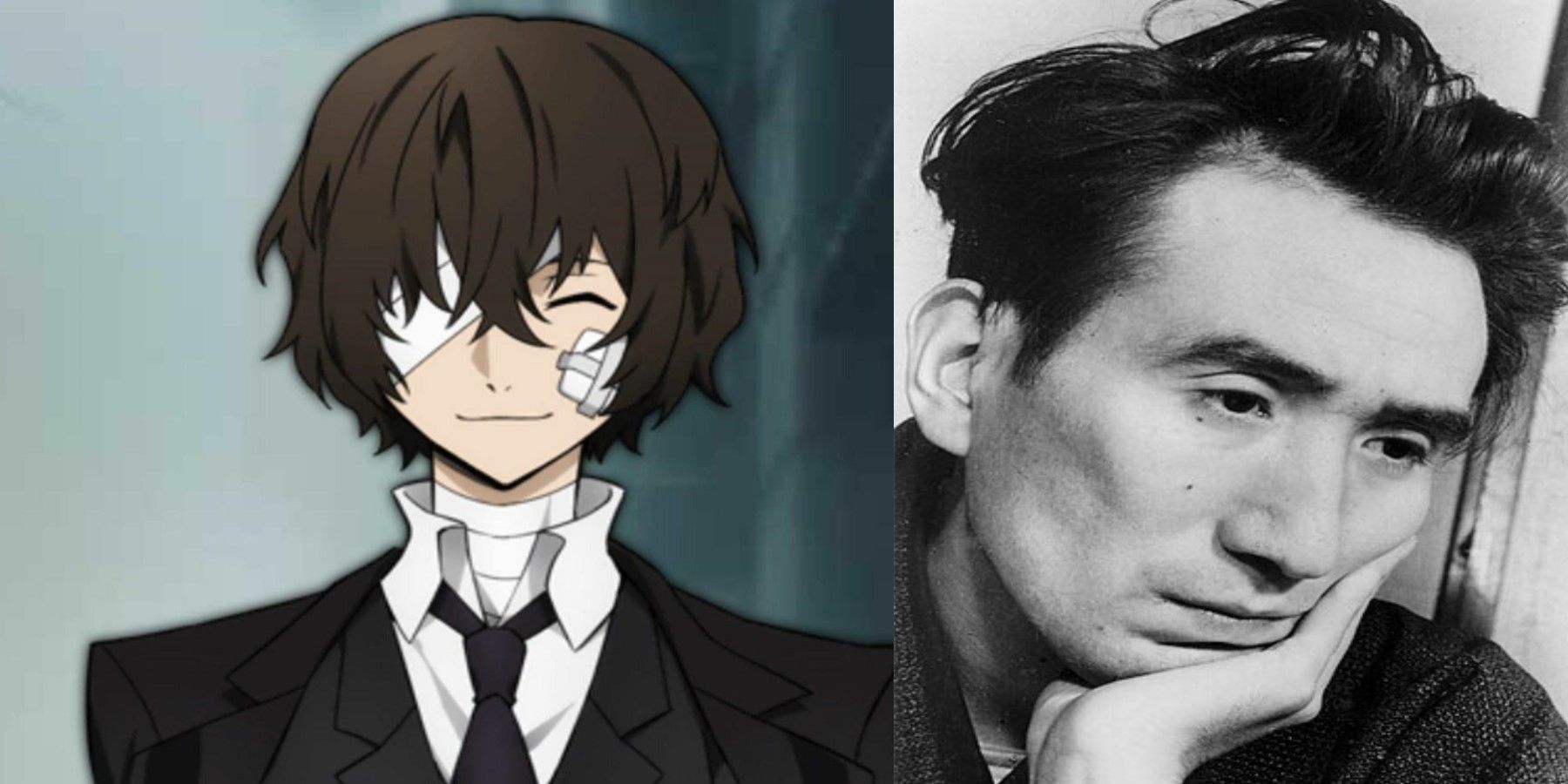First airing in Spring 2016, the action-packed detective anime, the adaptation of Kafka Asagiri's Bungo Stray Dogs quickly became a beloved title among anime fans. Spawning three seasons, with a fourth arriving sometime in 2022, the show's characters and interesting storyline with several supernatural elements are its biggest draw.
What fans eventually pick up on as they watch Bungo Stray Dogs is that the characters and various other elements of the series are based heavily on literature and literary figures, particularly those from Japan. So, what are some of Bungo Stray Dogs' most interesting literary references? Here are five that are particularly interesting, especially in the way that they are applied to the Bungo Stray Universe.
Akiko Yosano
In the series, Akiko Yosano is the Armed Detective Agency's resident physician. She has the rare ability called "Thou Shalt Not Die", which enables her to heal people's injuries. She was a physician for the military during the Great War. Her ability, despite being incredibly powerful, only activates when the target has sustained injuries that place them on the brink of death. As a result, Yosano's personality is also slightly sadistic, as she has to critically injure some of her patients before being able to treat them, something from which she tends to derive much enjoyment. Listed among Yosano's dislikes are weak men and chauvinists, which is part of the reference to the real-life Akiko Yosano, a Japanese author and pioneering feminist. In reality, Akiko Yosano was an incredibly influential yet controversial figure in post-classical Japanese literature.
Using traditional tanka poetry as the vehicle for her writing, Yosano opened up a path for women who'd follow through her unique expression of femininity at the time, placing women as complete agents in her writing. Her writing effectively created a new image of womanhood in Japan, especially through the collection of tanka poems titled Midaregami (Tangled Hair), which ushered in a new opportunity for Japanese women to imagine, experience and express new representations of female sexuality and the female body. She also had controversial views concerning the primacy of motherhood in representations of the female experience and in womanhood, views which were ahead of her time, especially those concerning the financial independence of women. Her poem titled Kimi Shinitamou koto nakare (Thou Shalt Not Die) was directed at her younger brother who'd been enlisted in the Russo-Japanese War (1904-1905), and this poem is where the character's special ability gets its name. The poem was made into a song and considered to be a form of anti-war protest, which lends itself towards the character's history of having been a doctor during a time of war.
Atsushi Nakajima
The first character introduced in Bungo Stray Dogs is Atsushi Nakajima, an 18-year-old who was unfortunate enough to be kicked out of the orphanage where he lived due to his age, in a time when people were claiming to have suffered attacks from a tiger that roams the streets at night. The tiger turns out to be none other than Atsushi himself, who would transform into a white tiger at night and wake up in the morning with no recollection of what had happened.
Named after the Japanese author Atsushi Nakajima, the character's transformation into a tiger is inspired by Nakajima's short story, "The Moon Over the Mountain", in which a man hears about a man-eating tiger roaming the area and encounters it, only to find out that the tiger is an old friend of his who underwent a transformation. In the first episode of Bungo Stray Dogs, Atsushi has a flashback to when he was kicked out of the orphanage and told that a "good-for-nothing" like him wasn't needed. Despite having grown up there, Atsushi is left to fend for himself, without a cent to his name. This indicates that the orphanage staff may have mistreated him, which is consistent with the early life of author Atsushi Nakajima, who had a tumultuous life living with his father and not one, but two abusive stepmothers in his lifetime.
Edogawa Ranpo
Edogawa Ranpo is the pen name of the Japanese author Tarō Hirai, who is best known for his influential contribution to the advancement of Japanese mystery and thriller fiction. In Bungo Stray Dogs, Ranpo Edogawa is a super detective whose ability, Super Deduction, enables him to find out the truth behind a crime and find crucial information within seconds. It is later revealed that the ability Super Deduction doesn't actually exist, and Ranpo is simply solving crimes at break-neck speed through the power of his intelligence alone.
In real life, Tarō Hirai admired western authors, particularly Edgar Allan Poe from whom he derived the pen name "Edogawa Ranpo", and others like Sir Conan Doyle. Interestingly, it is also from Edogawa's reverence of Conan Doyle that the Case Closed protagonist, Shinichi Kudō, derives his new identity: Conan Edogawa; a combination of the names of Shinichi's favourite mystery authors and biggest influences.
Ryūnosuke Akutagawa
In Bungo Stray Dogs, Akutagawa is a member of the Port Mafia, the series' most notable criminal organization from which Dazai defected prior to the events of the series. His ability is Rashо̄mon, a cloak which turns into a shadow-like beast that can change its shape depending on Akutagawa's needs. The Port Mafia is extremely influential and operates on various levels unbeknownst to the average person in the Bungo Stray Universe. Akutagawa is a slender, gaunt-faced man with a pale complexion who is prone to fits of coughing. He is extremely violent and justifies his actions through his "survival of the fittest" outlook. While he tends to maintain a sense of composure, Akutagawa is prone to lashing out, a trait stemming from a harsh upbringing in the slums of Yokohama. His life changes when he meets Dazai, as he develops a sense of respect for someone for the first time; however, he develops envy for people whom Dazai has seemingly accepted, like Atsushi.
Like the other characters, Akutagawa gets his name from his real-life counterpart; Ryūnosuke Akutagawa, an author dubbed "The Father of the Japanese Short Story". His most famous is Rashо̄mon, a story about a servant who is fired by his master and later meets an old woman at the dilapidated southern gate of ruined Kyoto, the Rashо̄mon, where people would dump unclaimed corpses. The servant is contemplating living a life of crime to survive, or simply starving to death. He sees an old woman picking the hair off the corpses, which greatly disgusts him, so he opts to live righteously even if it leads him to starvation.
When he confronts her, the woman tells him that she makes wigs from the hair she steals from the corpses. In fact, the corpse the old woman is robbing in that instant is a woman who used to sell snake meat as fish; however, the old woman isn't judgmental of such actions as they allowed the deceased to prolong her own survival. Thus, the old woman can understand her theft as ultimately righteous, as it allows her to prolong her life. The servant man then responds by asking her if she'd bear him any ill will if he chose to steal her clothing then and there for his own survival, before brutally robbing the old woman and disappearing into the night.
The Akutagawa in Bungo Stray Dogs is based on the servant man in the Rashо̄mon short story, particularly in his employment of a certain code of ethics for the sake of survival, and his justification of his own evil actions through this code of ethics. The coat worn by Akutagawa in the series, which is the general form of his Rashо̄mon ability, is a direct reference to the kimono that the servant steals from the old woman in the Rashо̄mon short story. The character's respiratory issues and the malaise evident in his physical appearance is an interpretation of the ill health of Ryūnosuke Akutagawa after he went on hiatus to spend four months in China as a reporter. The trip was extremely stressful, and the effects on his body would persist until his death by suicide at the age of 35.
Osamu Dazai
In the series, Osamu Dazai is the enigmatic main character and detective who solves the mystery behind the appearances of the supernatural tiger that was terrorizing the city. His eccentric personality and consistent pursuit of the eternal respite that is death are a parody of the author Osamu Dazai's precarious relationship with life. In reality, Dazai was a troubled author who attempted to take his own life on several occasions, with one notable failure being a double-suicide with a young woman named Shimeko Tanabe, whom he'd met at a bar. Tanabe died, but Dazai survived, going on to survive several more suicide attempts before ending his life in a double-drowning together with his wife at the time, Tomie Yamazaki. This successful attempt is the possible inspiration behind the character's debut in the series, in which he is saved from drowning by Atsushi Nakajima, whose real-life counterpart ironically died of a series of asthma attacks during a period of being bedridden due to pneumonia, an illness characterized by fluid accumulation in the lungs.
In Bungo Stray Dogs, Dazai's ability is known as "No Longer Human" (Ningen Shikkaku), which nullifies any ability it comes into contact with. The ability is named after author Osamu Dazai's apparent semi-autobiographical magnum opus, which remains the second-best-selling novel in Japan to this day. In Japanese, word "shikkaku" refers to a kind of degradation of the subject the effect of which is akin to disqualification, the removal of the qualities that are the subject. The word is written, "失格", with the characters for "loss" and "quality" (in the sense of "characteristic"). "Ningen Shikkaku" [人間失格] can therefore also be understood to be "disqualification from humanity", lending itself to the ability's quality of nullification, as well as Dazai's sense of self-loathing.

